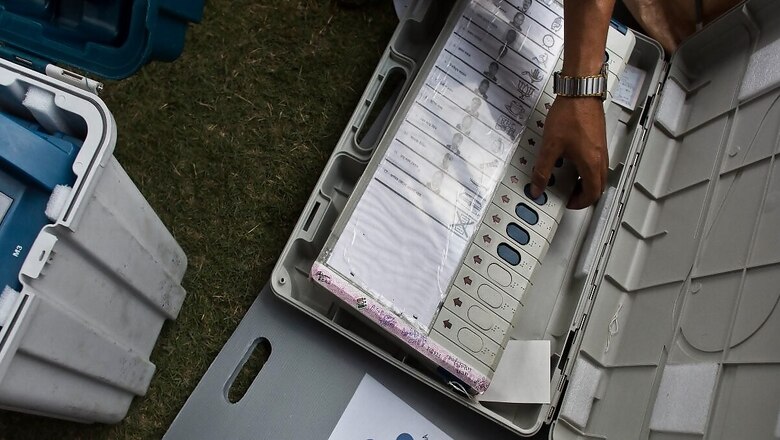
views
The Supreme Court on Friday dismissed the pleas seeking ballot paper voting and rejected pleas seeking cross-verification of the votes cast in Electronic Voting Machines (EVMs) with Voter Verifiable Paper Audit Trail (VVPAT).
The Supreme Court, however, issued two directions for the Election Commission. The court said that after symbols are loaded into an EVM, the symbol loading unit should be sealed and secured in containers in the presence of polling agents and candidates. The sealed containers containing the SLUs shall be kept in the storerooms along with the EVMs at least for 45 days after the declaration of results, the court said.
The top court further added that the burnt memory semicontroller in 5% of the EVMs that is the Control Unit, Ballot Unit and the VVPAT shall be verified by engineers of the manufacturing companies post the announcement of the result on a written request to be made within seven days of the declaration of results.
“The expenses for the verification (of the program) to be borne by the candidates making the request, in case the EVM is found to be tampered, the expenses will be refunded,” said the Supreme Court.
“While balanced perspective is important, blindly doubting a system can breed scepticism and thus, meaningful criticism is needed, be it judiciary, legislature etc. Democracy is all about maintaining harmony and trust among all the pillars. By nurturing a culture of trust and collaboration, we can strengthen the voice of our democracy,” Justice Datta said in the judgment. He added that the court’s approach in this matter has been guided by evidence.
The top court had on Wednesday said it cannot “control the elections” or issue directions simply because doubts have been raised about the efficacy of Electronic Voting Machines (EVM), as it reserved its judgement on the clutch of petitions, which also claimed the polling devices can be tinkered with to manipulate the results.
The court said it cannot change the thought process of those doubting the advantages of polling machines and advocating going back to ballot papers.
The bench also took note of the answers to queries it posed to the Election Commission. It sought answers from an official of the poll panel to five questions related to the functioning of EVMs, including whether the microcontrollers fitted in them are reprogrammable. After a two-day hearing, the bench had on April 18 reserved its verdict on the pleas. However, the matter was listed again on Wednesday as the court wanted some clarifications from the EC.
NGO ‘Association for Democratic Reforms’, one of the petitioners, has sought reversal of the poll panel’s 2017 decision to replace the transparent glass on VVPAT machines with an opaque glass through which a voter can see the slip only when the light is on for seven seconds. The petitioners have also sought the court’s direction to revert to the old system of ballot papers.
The seven-phase Lok Sabha polls began on April 19 and will conclude with the announcement of results on June 4.
(With PTI inputs)
Explore Live updates on the Lok Sabha Elections 2024 Phase 2 In regions, including Kerala , Karnataka , Noida , and West Bengal . Stay informed about key constituencies, voting trends, and candidate insights. Get Lok Sabha Election 2024 Related Real-Time Updates At News18 Website.
















Comments
0 comment